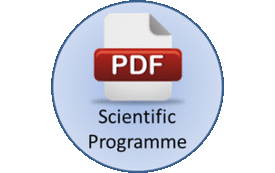
Hongsheng Guo
National Research Council Canada, Canada
Title: Dual fuel combustion in compression ignition engines and the application for low carbon fuels
Biography
Biography: Hongsheng Guo
Abstract
Compression ignition diesel engines have been widely used in transportation and power generation industries due to the higher reliability and superior fuel conversion efficiency. However, they generate a significant amount of CO2 and particulate matter (PM) emissions. The Paris Climate Agreement requires a significant reduction in CO2 emission in next 10~30 years, which has exerted pressure to industries using diesel engines. Fuels produced from renewable resources generate significantly lower CO2 emissions than diesel combustion, such as renewable natural gas, biogas, and syngas. Replacing diesel by these renewable fuels in internal combustion engines help significantly reduce CO2 emissions. Dual fuel combustion mode is an efficient, practical and flexible way to burn these renewable fuels in internal combustion engines since it maintains the higher efficiency of diesel engines and retains the capability to switch back to pure diesel combustion mode when there are not enough renewable fuels. This study investigates a low carbon gaseous fuel–diesel dual fuel combustion engine. The low carbon gaseous fuel can be renewable natural gas, biogas or syngas. The results show that the dual fuel combustion significantly reduces CO2 emissions and almost remove PM emissions. Therefore, the greenhouse gas (GHG) emissions from a dual fuel engine are much lower than those from a diesel engine operating at the same power output. The dual fuel combustion mode provides a great pathway for renewable gaseous fuels to replace diesel in internal combustion engines to reduce GHG emissions in future, such as for power generation and transportation.

